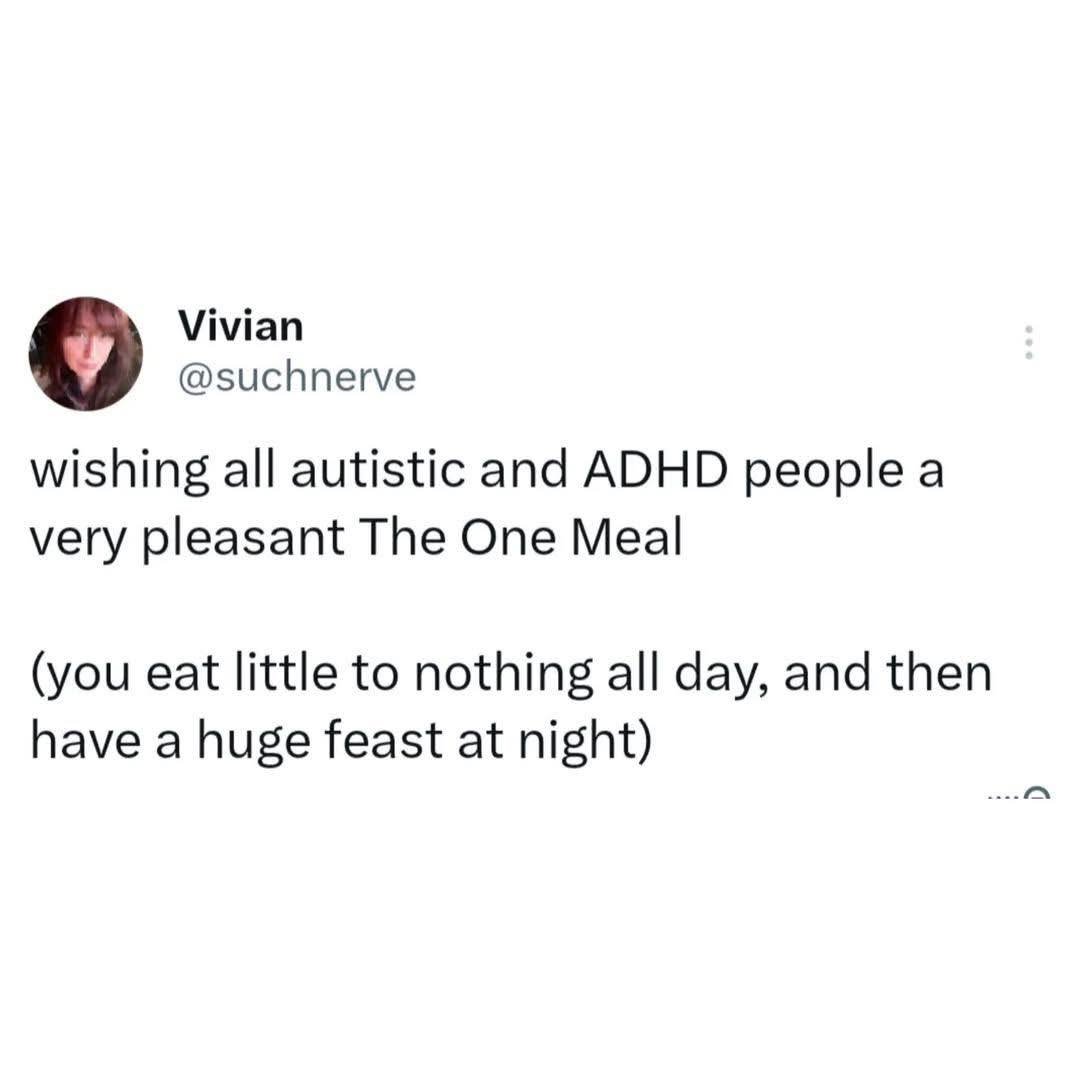Over the last few weeks I switched from the one meal to all day grazing Edit: I like the one meal a lot better
ADHD memes
ADHD Memes
The lighter side of ADHD
Rules
Other ND communities
- !adhd@lemmy.world - Generic discussion
- !ausomememes@lemmy.dbzer0.com
- !autism@lemmy.world
- !autisticandadhd
- !neurodivergence@beehaw.org
What? But Oreo Megastuff cookies exist
i’ve recently been started doing One Meals a little differently. i now get a big pan and add in basically every kind of food i should be eating throughout the day (fruits, vegetables, eggs, tofu, etc.) and cook it with a bit of oil and seasoning. i then add a bunch of spicy stuff to mask the taste, and sometimes add in yogurt to make it last longer and undo some of the spicy. i can then just scoop this into a bowl and heat it up in the microwave anytime during the day when i get hungry. it’s still One Meal, but it now lasts upwards of 3 days and i nibble away at it as needed.
That's just the Caveman Diet. I'm neither autistic nor have ADHD and that's been my food method for decades. No breakfast, sandwich at lunch, banquet in the evening.
Binge eating in the evening is awful for you. If you forget to eat frequently then switch to having a heavy breakfast so those calories are available to your body through the day.
Source?
https://pmc.ncbi.nlm.nih.gov/articles/PMC9010393/
Basically, your metabolism and caloric needs are highest in the middle of the day, eating heavy meals in the evening means a lot of that food is converted into body fats and processed while you sleep which impairs your rest. Also, instead of being available as easily accessed calories when you're active the body needs to convert that energy from fats which generally causes more sluggishness and lower activity during the day. It's a good idea to eat before (but not right before) you're active.
Summary
When meals are eaten, in relation to the time of day, is increasingly considered of importance when implementing dietary change in order to address the growing burden of obesity, although further research is required in order to determine optimal patterns.
That study is more focused on weight gain and not really about the effect on sleep. Sleep is mentioned, but in reference as a co-contributer.
I've done OMAD (eat at night) for close to 15 years and have always been on the lower end of my BMI ratio and other than walking between buildings at work, no real exercise. To gain any weight, I would have to eat 4,500-5,000kcal/day. My sleep has also always been the same throughout my life regardless of eating style. (it may have even improved with my eating style)
New Lemmy Post: Hate it when someone nails me and doesn't even know me (https://lemmyverse.link/lemmy.dbzer0.com/post/35778354)
Tagging: #memes
(Replying in the OP of this thread (NOT THIS BOT!) will appear as a comment in the lemmy discussion.)
I am a FOSS bot. Check my README: https://github.com/db0/lemmy-tagginator/blob/main/README.md
